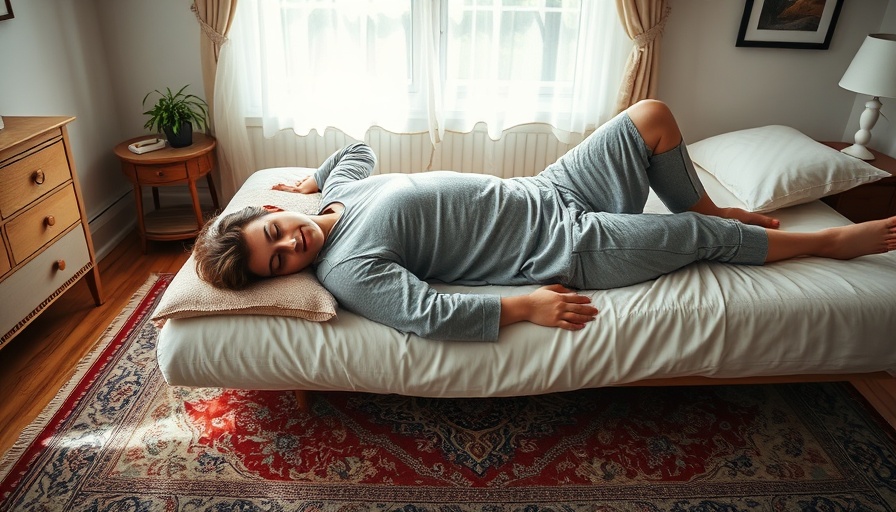
Understanding the Challenge of Sleep
If you've ever spent countless nights staring at the ceiling, wishing for sleep to come, you're not alone. Many people struggle to find restorative rest in an age filled with busy lives and endless distractions. The reality is that sleep has become something we chase rather than an essential part of our daily routine. As we grapple with the pressures of modern life, stressing over sleepless nights only adds to the cycle of insomnia. Acknowledging this paradox can be the first step towards a healthier relationship with sleep.
Mindfulness as a Sleep Aid
Interestingly, engaging in mindfulness and meditation practices has shown significant positive effects on sleep quality. Mindfulness encourages a state of awareness, helping us to observe our thoughts and feelings without judgment. This nonreactive approach can ease anxiety surrounding the elusive nature of sleep. When we allow ourselves to simply be, rather than forcing ourselves to sleep, we may find that slumber comes more easily.
The importance of a consistent wind-down routine cannot be overstated. Simple practices such as mindful breathing, gentle stretching, or even listening to soft music can signal your body that it's time to transition into rest. This can pave the way for a deeper sense of calm as you prepare for sleep.
The Power of Self-Compassion
One often overlooked element of overcoming sleep challenges is self-compassion. Instead of criticising ourselves for our inability to sleep, incorporating kindness and understanding can bring about a significant shift. Consider the self-compassion exercise inspired by Kristin Neff: Focus on your breath and affirm, 'My trouble falling asleep is a moment of suffering.' Recognizing that others share in this experience can ease feelings of isolation associated with insomnia.
Practical Sleep Questions
To better assess your sleep situation, consider asking yourself a few introspective questions:
- 1) Is my bedtime routine conducive to sleep? Analyze your pre-sleep habits. A quiet, screen-free space with a consistent bedtime can work wonders.
- 2) Should I consult a professional? If sleeplessness persists, considering a doctor's visit can be beneficial. Identifying underlying sleep disorders can lead to effective treatments.
- 3) How do daily habits affect my sleep? Habits involving screens, caffeine, and alcohol can significantly disrupt sleep cycles. Evaluating these can help guide your choices.
- 4) Am I trying too hard to fall asleep? Paradoxically, by surrendering the effort to sleep and focusing instead on breath or sensation, you might invite sleep naturally.
Embracing the Mind-Body Connection
Engaging with practices that promote relaxation can enhance the connection between your body and mind, ultimately supporting better sleep. Whether it's gentle yoga, restorative breathing techniques, or engaging in calming activities before bed, fostering this relationship is crucial. This can lead to not only improved sleep patterns but a refreshed perspective on everyday challenges.
Conclusion: The Journey to Restful Sleep
The pursuit of healthy sleep need not be fraught with frustration. By practicing mindfulness, extending self-compassion, and taking actionable steps toward a soothing bedtime routine, you can reclaim the peaceful, restorative sleep that often feels just out of reach. As you make these small but meaningful changes, remember that the journey to restful sleep is both personal and transformative.
 Add Row
Add Row  Add
Add 




 Add Row
Add Row  Add
Add 

Write A Comment